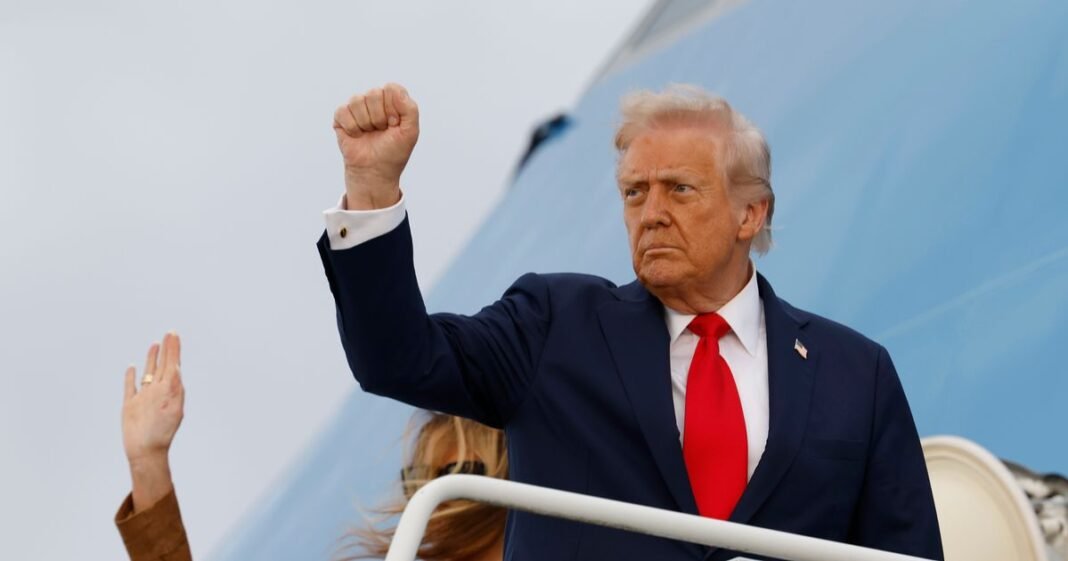US President Donald Trump urged UK Prime Minister Keir Starmer to consider deploying the military to address the issue of small boat crossings following his three-day state visit to the UK. Trump, departing on Air Force One back to the USA, had engaged in discussions with UK leaders, culminating in a significant tech deal agreement worth £250 billion.
While the visit showcased camaraderie, there were points of contention, notably on recognizing Palestine as a state and handling illegal migration. Trump emphasized the need to halt unauthorized entries, suggesting military intervention if necessary.
Protests against Trump’s policies were staged in Edinburgh, reflecting public dissent. Additionally, Trump criticized London Mayor Sadiq Khan, labeling him as one of the “worst mayors in the world.”
The state visit also witnessed substantial investment commitments from US firms in the UK, particularly in tech and nuclear sectors. Notably, collaborations between NASA and the UK Space Agency were highlighted, focusing on AI models for space exploration.
As Trump’s visit concluded, controversies arose, including his denial of acquaintance with former US ambassador Peter Mandelson. The press conference between Trump and Starmer revealed divergent views on various issues, underscoring diplomatic complexities.
Trump’s departure was marked by an emergency landing of his presidential helicopter due to hydraulic issues, highlighting the eventful nature of his visit. Despite the cordial facade, underlying tensions and disagreements surfaced during Trump’s interactions with UK leaders.
The visit’s aftermath saw contrasting narratives emerge, with Trump emphasizing trade benefits for the UK and Starmer focusing on collaborative efforts to address regional challenges. Despite the pomp and circumstance, the visit left lingering uncertainties and diplomatic intricacies in its wake.

